Ocular Disease
We provide diagnosis, treatment and management of diseases which affect the human eye
and visual system. Some examples where we have special training include
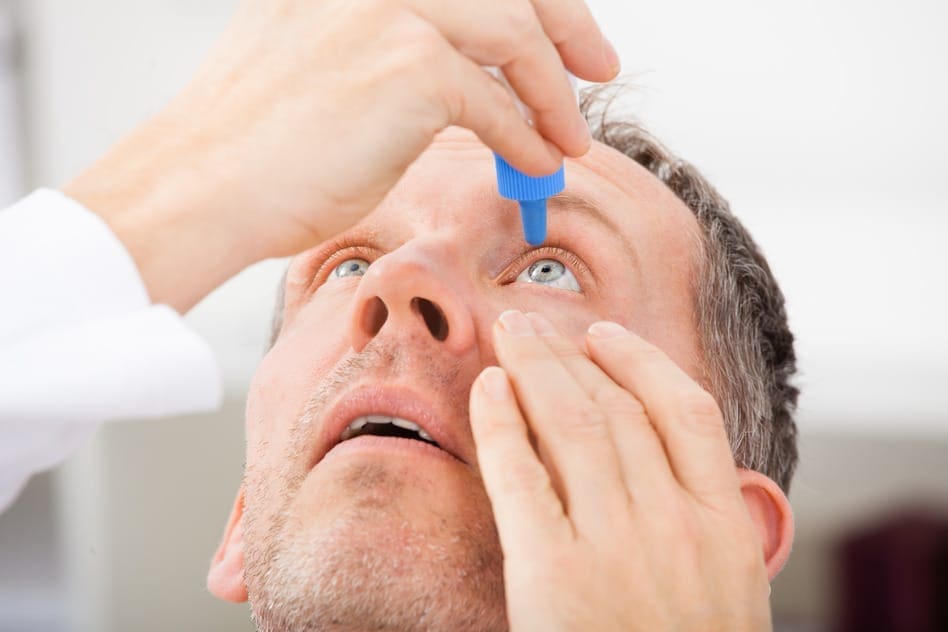
Dry Eye Syndrome
Dry Eye Syndrome occurs when the normal flow of tears over the eyes is interrupted, or the tear film is abnormal. In many cases, dry eye syndrome is a life long problem. You can relieve the symptoms, but not cure the original cause. Artificial tear lubricants or in some cases blocking the tear ducts will concentrate the limited tears that are available.
Glaucoma
Glaucoma occurs when the pressure inside of the eye increases to the point where it damages the sensitive retinal nerves that line the back of the eye. There are a multitude of tests that we provide to evaluate the possibility of Glaucoma. For example, the light color found here, in the center of the optic nerve head, is a classic observation found in Glaucoma. Other tests include evaluation of the Nerve Fiber thickness around the optic nerve. Threshold Field tests are also very important in the ongoing evaluations needed to monitor the treatment program which most frequently includes the selection of the most appropriate eye medication.
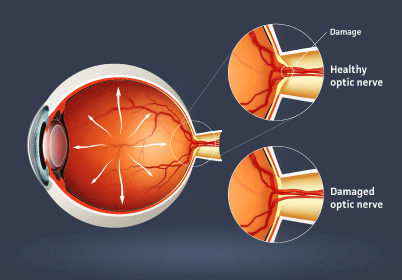
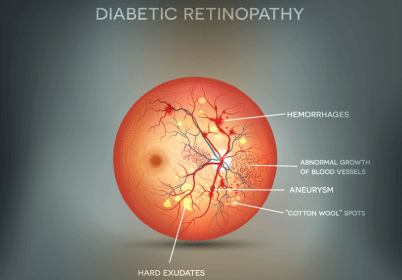
Diabetic Retinopathy
Diabetic Retinopathy is a condition where sugar levels start a series of events which end in damaged blood vessel walls. As such, the blood vessels begin to leak fluid or bleed, resulting in hemorrhages and swelling followed by the formation of yellow deposits known as exudates. Vision can be lost where some of these hemorrhages and exudative spots occur. The best treatment is to have a yearly eye examination to identify if these spots are present. We carefully examine the back of your eyes and provide you with the results and additionally offer these to other physicians for a multidisciplinary treatment program.
Cataract
A cataract is a clouding or opacity of the natural internal lens of the eye. This opacity may be a small spot or may cover the entire lens. When light enters the eye it is scattered, causing images to appear hazy and blurred. There are many different types of cataracts. The one shown here is a cortical cataract. Here the opacity forms first is the periphery of the lens and develops inward, like spokes of a wheel. Ultimately, the best treatment is to remove the cataract lens and replace it with an acrylic man-made lens. This is referred to as cataract surgery. We work closely with specialized eye surgeons. We provide pre- and post-cataract surgery management.
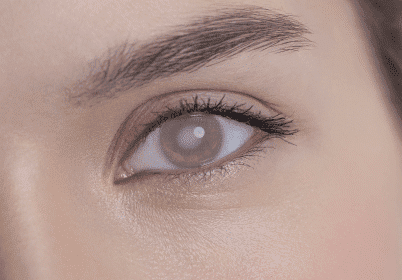
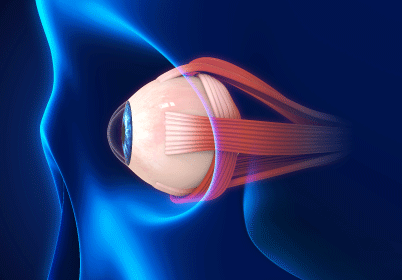
Keratoconus
Keratoconus is a disorder that occurs when the cornea, which is typically rounded, becomes cone-shaped. The progression is usually slow and can stop at any stage from mild to severe. This distortion increases as the cornea bulges and thins. The apex of the cornea often scars, reducing the vision. Treatment of Keratoconus is most effective with gas permeable contact lenses, designed specifically for the irregular corneal surface. If contact lens treatment is not successful, a surgical corneal transplant may be necessary.
Macular Degeneration
Macular Degeneration is a condition in which the central part of the back of the eye loses blood circulation. As a result, there is a breakdown of retinal pigment epithelium cells in the macular region. As the disease progresses, central vision diminishes. This breakdown is due to a lack of nutrients and oxygen needed for the extreme number of light sensitive nerve cells concentrated in the central vision area. For those who genetically inherit small blood vessels, this can be an important piece of information. Nicotine is known to shrink blood vessels and contributes to an additional risk factor for Macular Degeneration. We provide specialized tests to evaluate your personal risks. We can also provide health and nutritional counseling to reduce this risk. In advanced cases, we work closely with specialized Retinal Surgeons who may be needed to treat Macular Degeneration.
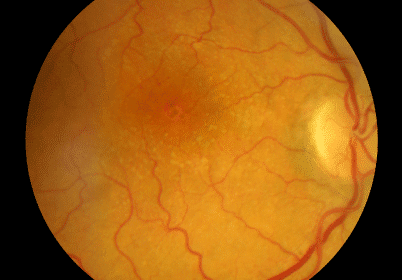
Our doctors are residency trained doctors who have extensive study into the mechanism of disease that affect the eye. We provide both diagnosis and treatment for most of these conditions. We also have hand picked specialists that we feel are exceptionally skilled at providing specialized care in complex cases. Our services are available 5 days a week. We also provide emergency care when injuries or complications occur in your eyesight. We accept major medical insurance as well as Medicare.

